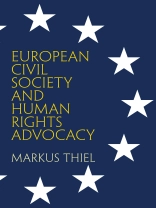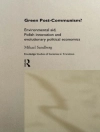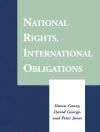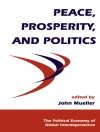Adherence to basic human rights norms has become an expected feature of states throughout the world. In Europe, the promotion and protection of human rights through national governments has been enhanced by the diversity of intergovernmental organizations committed to this cause. The latest addition to the continent’s rights organizations arrived ten years ago when, based on the EU’s Lisbon Treaty, the Fundamental Rights Agency (FRA) was created as a functional institution to highlight and improve human rights within EU member states. In contrast to other regulatory agencies in the EU, the FRA provides a research-based advisory function for EU institutions and legislation and performs a public-diplomacy function in promoting fundamental rights across EU member states.
The linking of civil society with internal rights policies has yet produced very little scholarship. Markus Thiel’s European Civil Society and Human Rights Advocacy not only fills this vacuum: it also offers a timely analysis in the context of Europe’s proliferating human rights challenges, like the current refugee crises and the nationalist responses that geopolitical changes have provoked. European Civil Society and Human Rights Advocacy examines the interaction between the FRA and hundreds of transnational civil society organizations working with and on behalf of vulnerable populations in EU member states and probes the high normative standards of human rights attainment and transnational participatory governance in the EU.
Thiel surveys how networking among civil society organizations takes place, to what extent they are able to set the agenda or insert themselves into EU decision-making procedures, and how they are able to exploit the opportunity structure presented by the FRA’s institutionalization of a voice for civil society. Thiel draws conclusions for the larger issues of human rights promotion, transnational citizenship, and participatory governance in the region, reflecting broadly and critically on the legitimacy of EU human rights norms through a political sociology perspective.
Mengenai Pengarang
Markus Thiel is Associate Professor of Politics and International Relations, and Director of the Miami-Florida Jean Monnet Center of Excellence at Florida International University.












